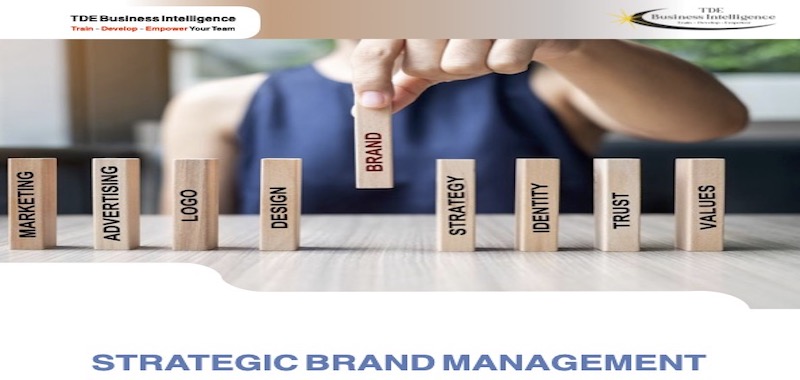
SCHEDULE
| Dates | Venue | Category |
| 19-23 June 2023 | Kuala Lumpur – Malaysia | Customer Service – Marketing |
| 10-14 July 2023 | Port Moresby – Papua New Guinea | Customer Service – Marketing |
| 14-18 August 2023 | Bangkok – Thailand | Customer Service – Marketing |
INTRODUCTION
The power of brands has increased enormously in the past 25 years, Apple®, Google®, Microsoft®, Amazon® and Facebook® have combined annual revenues in excess of $800 billion and previously defunct brand names such as Blaupunkt® and Akai® have been revived – because brands sell products and services, to consumers and to businesses.
This Strategic Brand Management training seminar will provide you with the fundamental understanding of how to manage your brands strategically, as well as providing a useful set of tools and techniques to help you achieve your goals.
BENEFITS OF ATTENDING
Upon the completion of this training, participants will be able to:
- Debate how brands are valuable assets and how careful management is essential in their creation and development
- Describe how to determine brand values and select appropriate market positions
- Discuss planning and creating marketing initiatives and hos this is best achieved
- Explain how brand performance can be managed and appropriate action taken
- Analyze how to develop brands through brand/category extensions and consider whether market diversification is appropriate
WHO SHOULD ATTEND?
- Brand Managers
- Marketing Executives
- Product Managers
- Key Account Executives, Business Development Professionals, Sales Executives and Sales Managers
- Entrepreneurs
- Small to Medium Enterprise (SME) owners and Managers
COURSE MODULES
Session 1: Introduction, Brand Position and Brand Values
- Definitions – brand, brand v product comparison brand architecture and examples
- Why do brands matter, what can be branded, Brand assets, brand strengths and brand values
- What is brand management, definition of brand equity, Providing a link from the past to the present and on to the future
- The crucial importance of building consumer knowledge/perception
- Creating brand equity through awareness, image and associations, how outstanding brands stand out
- Designing appropriate product category structures – using the CBS (Category Breakdown Structure)
- Key aspects of strong brands (performance, image, consumer judgments, consumer emotions, consumer rationale, brand significance, overall resonance with customer), the relationship between brand and customer equity
Session 2: Brand Equity and the Consumer
- The essentials of brand positioning, developing a strong position, identifying core brand associations, auditing brands
- Selecting appropriate brand identities – six key factors to consider, gambits to make the brand identity memorable, protocols for naming brands
- Logos, symbols characters and slogans, don’t forget the packaging
- Using personalization techniques to connect with the consumer
- Developing an appropriate strategy for products, channel strategy, pricing strategy and value engineering
- Taking a joined-up approach to designing brand marketing programs, using personalization techniques to connect with the customer and developing an appropriate strategy for products
Session 3: Brand Marketing
- Prospering in the New Media, advertising channels, promotional activities and media relations
- Sponsoring events and taking a joined-up approach to designing marketing communications
- Working with brand associations, the relationship between existing and new brand associations
- The relationship between brands and channels, geographic factors, brand alliances and co-branding
- The concept of ingredient branding
- Licensing
- A brand as an asset, developing brand financials, e.g. return on investment, future cash flows, net present value
- Establishing the brand value chain
Session 4: Brand Performance
- Assessing brand performance
- External environment analysis
- Supporting brand audits with focused tracking surveys
- Using research to identify customer perception of brands, qualitative research methods, quantitative research methods
- Assessing customer attitudes to brands, brand based comparative methods and marketing based comparative methods, conjoint analysis – pros and cons
- Residual based methods and valuation-based methods
- Brand strategy, brand architecture and developing a hierarchy of brands
- Building brand equity
Session 5: Maintaining Brand Equity
- Introducing new products to the brand, The pros and cons of brand extensions
- Considering potential customer perceptions of brand extensions, designing brand extensions
- Naming brand extensions for maximum impact
- Managing brands over an extended period of time
- Balancing the brand portfolio to reflect changing business strategy and environment, refreshing tired brands, developing acquisitions and divestments
- Introducing new market segments, introducing new regional/continental markets, international considerations, building global brand equity
- Prospering in the New Media, advertising channels, promotional activities, media relations, sponsoring events, designing marketing communications
